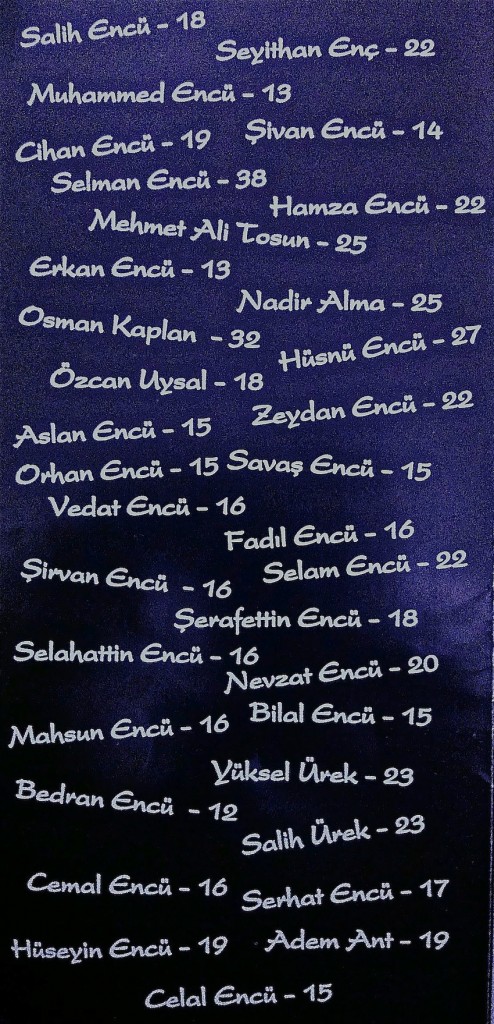Remembering Roboskî: What has Turkey learned?
On December 28, 2011 at around 9:30 p.m., a group of 37 villagers from Roboskî were hit by an aerial bombardment by the Turkish air force as they crossed back into Turkey from Iraqi Kurdistan. Thirty-four were killed. Seventeen of them were children.
The Roboskî massacre marked one of the bloodiest single acts of violence against Kurdish civilians by the Turkish government in recent years. The strike was allegedly done intentionally, with no apologies, no answers, and no reparations to the victims. The Human Rights Watch reported that “The parliamentary human rights investigative commission set up a sub-commission in January 2012 to examine the Uludere incident. However, the sub-commission has not yet concluded its inquiry or released any findings, despite repeated assurances that it would.”
Thus, the injustices of the Turkish government against the Kurdish people did not stop just at the air strike itself. The suppression of information, and the lack of any formal state action, means that the Turkish government does not regret its actions, and it does not see its actions as outside the realm of acceptable behavior. The Turkish government has not shown that it would prevent the Roboskî massacre from happening again.
This is perhaps the most important lesson from the Roboskî massacre. As Turkey strives to include itself among the world’s “democratic” countries, it engages in an anti-terror rhetoric that matches the War on Terror campaign led by the U.S. With U.S. drones and U.S. intelligence, Turkey was able to send it’s air force to Roboskî in the name of eliminating alleged terrorists. Turkey’s reaction, its unwillingness to apologize, and its lack of accountability and transparency in the investigation, make it clear that it does not see the Roboskî massacre as outside the realm of acceptable state action. Until Turkey acknowledges that its war on terror is actually founding on racist targeting of the Kurds, attacks such as Roboskî remain a very real possibility.

Comments are closed.